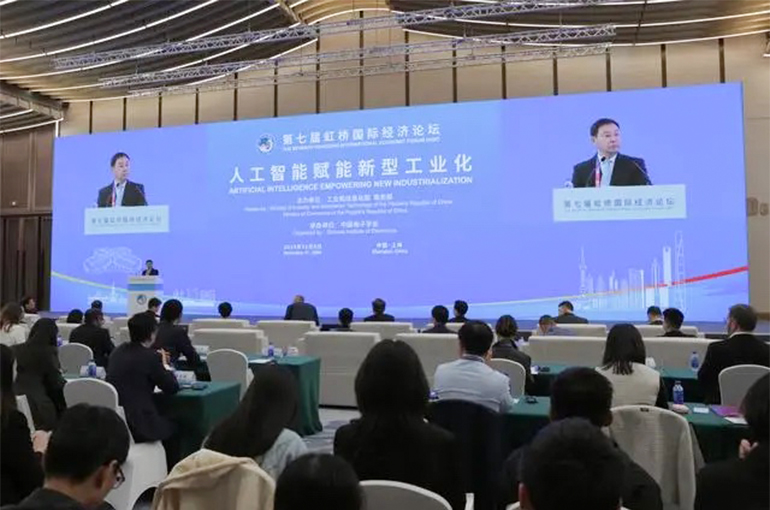 Gov’t Officials, Academics, Business Leaders Discuss AI-Powered Industrialization at CIIE Forum
Gov’t Officials, Academics, Business Leaders Discuss AI-Powered Industrialization at CIIE Forum(Yicai) Nov. 6 -- A host of experts, including government officials, scholars and top executives, explored how artificial intelligence has the potential to revolutionize industrial processes at the Hongqiao International Economic Forum, held as part of the ongoing seventh China International Import Expo.
China is better equipped than any other country to achieve industrialized AI, said Joseph Sifakis, a Turing Award winner and foreign academician at the Chinese Academy of Sciences.
China should not only focus on conversational AI and other systems but also leverage its strong industrial base and work with state-owned enterprises in all fields to build customized intelligent systems and targeted technologies for each industry, Sifakis said. China should also participate more in discussions on global standard-setting, he added.
Advances in generative AI technology, as well as third-generation, 4G and 5G mobile networks, will create new opportunities in the smartphone, personal computer and smart car sectors as well as in the application of Internet of Things, said Meng Pu, chairman of US chipmaker Qualcomm’s China arm. Qualcomm has worked with almost 60 Chinese auto brands in the past three years, releasing more than 160 intelligent connected models.
SAP will invest more than USD1 billion over the next two years to improve its AI solutions, said Luo Cai, global vice president of the German software firm. In addition to localized data and solutions on the mainland, SAP provides a streamlined process that complies with international regulations that enables Chinese customers to quickly enter global markets and achieve a rapid return on investment.
It is necessary to accelerate the promotion of AI to empower new industrialization, Vice Minister of Industry and Information Technology Xiong Jijun said at the forum.
China will strengthen innovation tie-ups and support Chinese and foreign companies, universities and scientific research institutions to carry out in-depth exchanges of technology and talent, Xiong said.
China will encourage industrial cooperation, promote the application of AI technology in scenarios such as research and development, design, testing and manufacturing, and set up a safe and stable AI industrial chain, he said.
China will deepen ties with international organizations on governance as well as study strategies and policies on the international standardization of AI, he added.
Editor: Kim Taylor